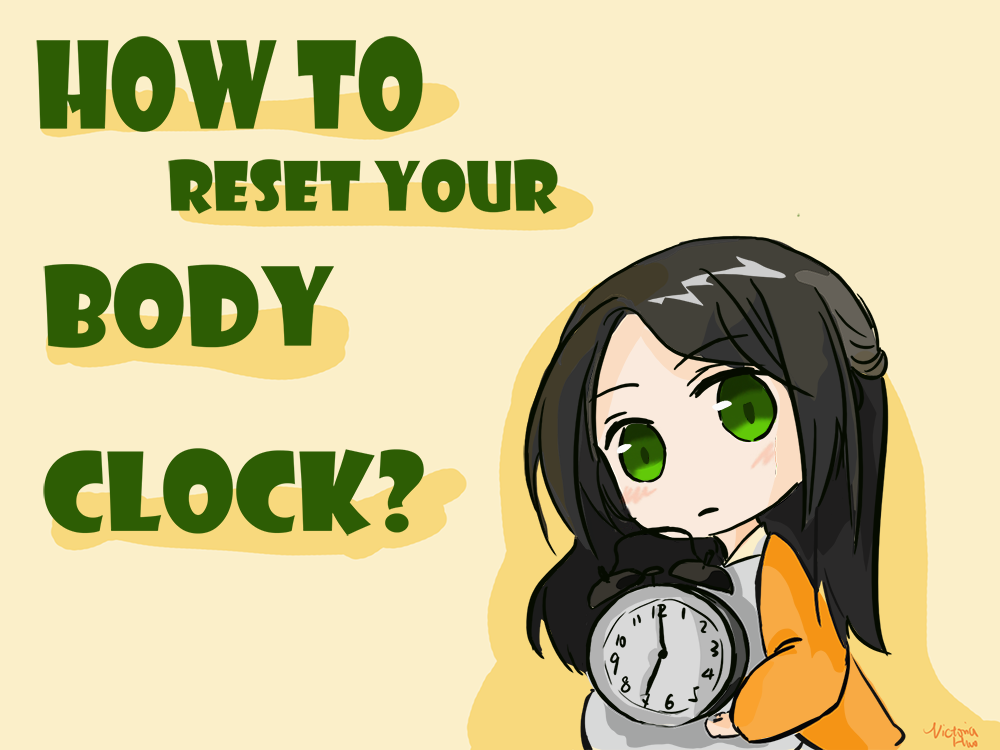How to reset your body clock
If you’re a “night person” and find mornings difficult for you, or you’ve pulled a series of all-nighters a week before the exams and are struggling to stay awake at that 8am lecture, and you’re not sure why – it’s all thanks to your circadian rhythm.
The circadian rhythm is simply your ‘body clock’. Think of the concept as if there are little minions running inside your body, monitoring it and signalling when refreshment is required, which comes in forms including food, water and rest.
The disruption of the circadian rhythm is most common in young people, and especially at times when students are trying stay on top of an overwhelming amount of work and getting by on minimal sleep.
One of the most irritating side-effects of disrupting your circadian rhythm is probably the sleeplessness that often comes after. The good news is that you can reset your body clock, and Trinity College’s school nurse Cate Charles has some tips:
Use the “Blue Filter” on your digital devices
Technology is one of the main culprits keeping you awake at night. According to the Cate, “electronic devices such as laptops emits blue light from their screens, which alerts the brain and causes difficulty in sleeping”. She recommends using “blue filter” applications.
Some mobile phones already have this as an in-built option (switching on the “Night Shift” mode if you’re using an iOS device for example). So be mindful aware and optimise your phone’s features for your own benefit.
Take power naps
Don’t underestimate the power of a quick snooze. Power naps or short naps of around 20 minutes are found to have a positive impact on helping you manage your body clock. Power naps allow the brain and eye to rest while the body does not enter ‘deep sleep’. Just remember that the key is to keep your naps short.
Take melatonin
After handing in the assignment that cost you three all-nighters, you’re looking forward to catching up on some sleep – only to find yourself wide awake at 2am, as if you’ve taken full caffeine shots.
If that’s you, Cate recommends taking some melatonin. She explains that melatonin is a natural chemical released by the Pineal gland, which is located in the brain, and controls day and night. Alteration of the circadian rhythm can cause irregular releases of melatonin, causing sleep difficulty.
To help with your sleep, try taking a melatonin tablet one to two hours prior to your bedtime. Melatonin has no side effects, are not prescription drugs and can be found at your local pharmacy.
Gradual adjustment
It can be difficult to change your sleep schedule all at once. A rapid change can shock your body, making you feel tired and may force you to take midday naps worsening disruptions to your circadian rhythm.
Cate suggests gradually adjusting your sleeping time until it meets with your desired sleeping time. A simple way to do this is by clocking back one hour every day.
“For example if your body is used to sleeping at 2am, force yourself to sleep one hour earlier the next day, do the same for following days.”
Eating a good diet
A good diet can go a long in helping lessen the probability of insomnia.
“High sugar also means the body works harder to digest, like some large evening meals and alcohol,” Cate says – and can make falling asleep more difficult.
In addition, when you eat late, more fat gets stored in your body making it easy to put on the pounds.
It is best to get most of your calories early in the day, and that’s not only for your health, but also your sleep.
Finally, the human body is a complex thing, and your body might react differently to someone else. Try these methods out to see which one works best for you, and remember to keep good sleep habits to maintain a healthy body clock.
This story was produced by Media and Communication students at Trinity College Foundation Studies as part of Meld’s community newsroom collaboration. Education institutions, student clubs/societies and community groups interested in being involved can get in touch with us via meld@meldmagazine.com.au.


